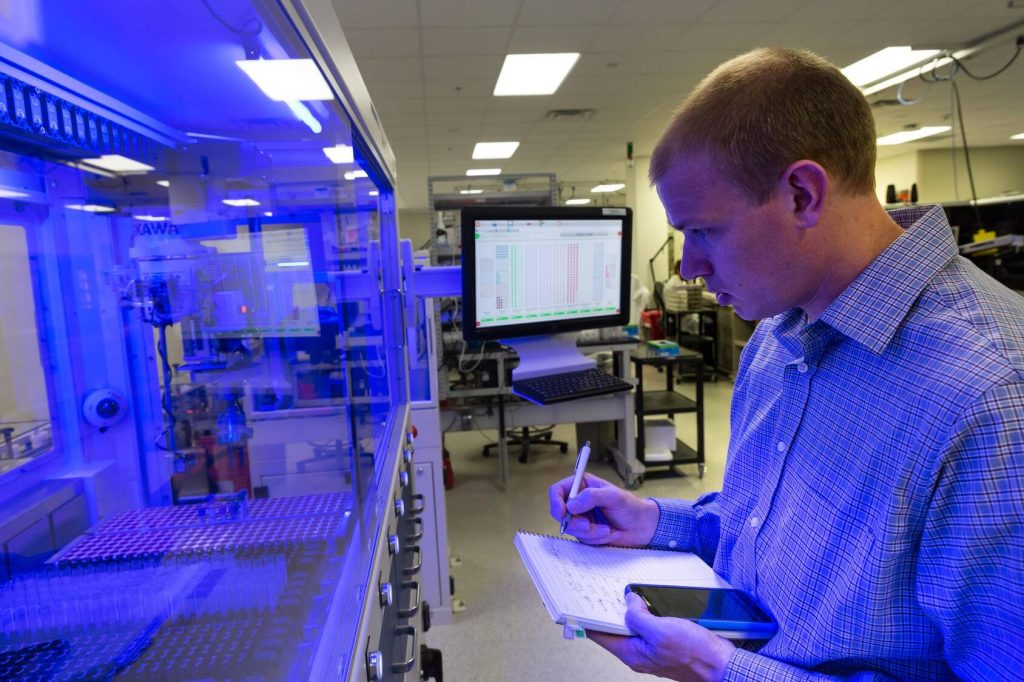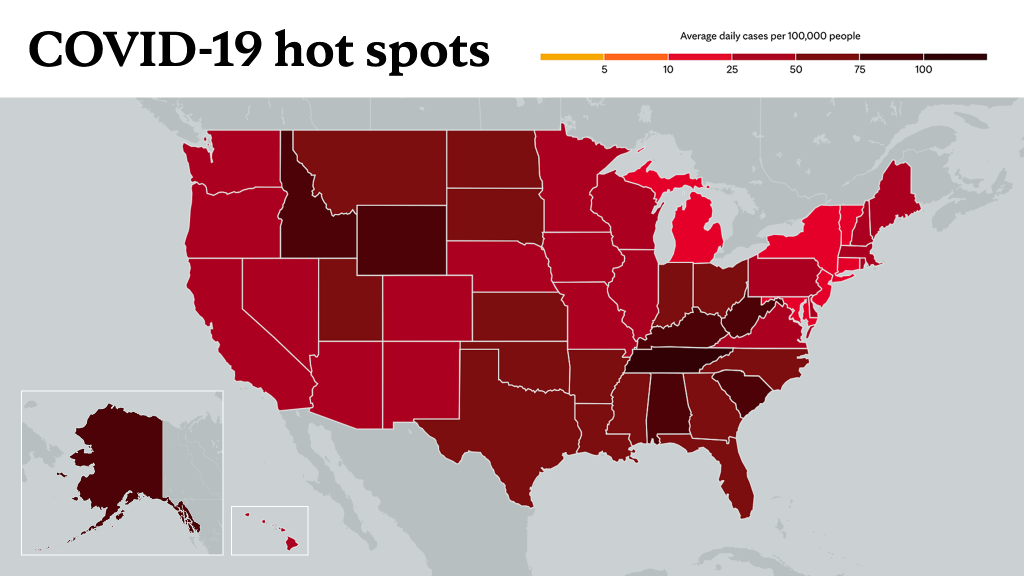-
Individualized Medicine
Mayo Clinic leads biorepository core for new nationwide research on long-term symptoms of COVID-19

Mayo Clinic research is dedicated to finding solutions for patients who were infected with COVID-19 and the many affected by the long-term symptoms of COVID-19 ― what the National Institutes of Health (NIH) refers to as "long COVID" or post-acute sequelae.
In response to great unmet patient need, the NIH launched a new research initiative to understand why some people who were infected with COVID-19 don't fully recover, or develop new or returning symptoms after recovery. As part of NIH's REsearching COVID to Enhance Recovery (RECOVER) Initiative, the NIH awarded $40 million to Mayo Clinic to develop a comprehensive biorepository as the source of clinical samples for long COVID research studies. A biorepository is a central resource of biospecimen collections to facilitate personalized medicine research.
"Mayo Clinic is in a unique position to provide support to this very important initiative with its state-of-the art infrastructure and expertise in biobanking for researchers to tackle the long-term effects of COVID," says Mine Cicek, Ph.D., director of the Mayo Clinic Biospecimens Accessioning and Processing Core Laboratory and the principal investigator of the award. Stephen Thibodeau, Ph.D., and Thomas Flotte, M.D., are co-principal investigators of this award.
The initiative is a national effort to bring together scientists, clinicians, patients and caregivers to take on the long-term effects of COVID-19. Mayo Clinic and its biorepository core joins New York University and its clinical science core, and Massachusetts General Hospital and its data resource core, as the three initiative cores that will provide the study's infrastructure and organizational framework. Together, these cores will build and support the initiative, as well as its participant pool and a team of investigators. These cores will ensure that data are standardized and shared among researchers and the public.
In addition, Mayo Clinic has received an award for the Post-Acute Sequelae of SARS-CoV-2 Clinic Studies Recovery Network: Clinical Studies Component for Autopsy-Based Studies, also known as PASCnet. This initiative will be led by R. Ross Reichard, M.D., a Mayo Clinic anatomical pathologist, and Mayo Clinic's COVID-19 Task Force. The Center for Clinical and Translational Science will oversee the research efforts. This work will be in addition to the ongoing clinical and research programs led by Ryan Hurt, M.D., Ph.D., a Mayo Clinic internist.
"This award is an incredible opportunity to collaborate with colleagues across the country to lay the foundation for research to understand PASC (post-acute sequelae of SARS-CoV-2 ) better and help those suffering from the long-term consequences of COVID," says Dr. Reichard.
Since early 2020, Mayo Clinic has dedicated over $25 million to its rapid response research programs, activated a task force with the agility to triage and treat patients, built innumerable registries, and collected datasets to assist in the ongoing study of recovery after being infected with COVID-19.
Mayo Clinic also houses the nation's biobank with blood and tissue samples from 1 million or more participants in the All of Us Research Program. Researchers are using this data to learn how biology, lifestyle and environment affect health.
About Mayo Clinic
Mayo Clinic is a nonprofit organization committed to innovation in clinical practice, education and research, and providing compassion, expertise and answers to everyone who needs healing. Visit the Mayo Clinic News Network for additional Mayo Clinic news. For information on COVID-19, including Mayo Clinic's Coronavirus Map tracking tool, which has 14-day forecasting on COVID-19 trends, visit the Mayo Clinic COVID-19 Resource Center.
Media contact:
- Colette Gallagher, Mayo Clinic Public Affairs, newsbureau@mayo.edu
For the safety of its patients, staff and visitors, Mayo Clinic has strict masking policies in place. Anyone shown without a mask was either recorded prior to COVID-19 or recorded in a nonpatient care area where social distancing and other safety protocols were followed.
Information in this post was accurate at the time of its posting. Due to the fluid nature of the COVID-19 pandemic, scientific understanding, along with guidelines and recommendations, may have changed since the original publication date.
For more information and all your COVID-19 coverage, go to the Mayo Clinic News Network and mayoclinic.org.
Learn more about tracking COVID-19 and COVID-19 trends.

Related Articles







